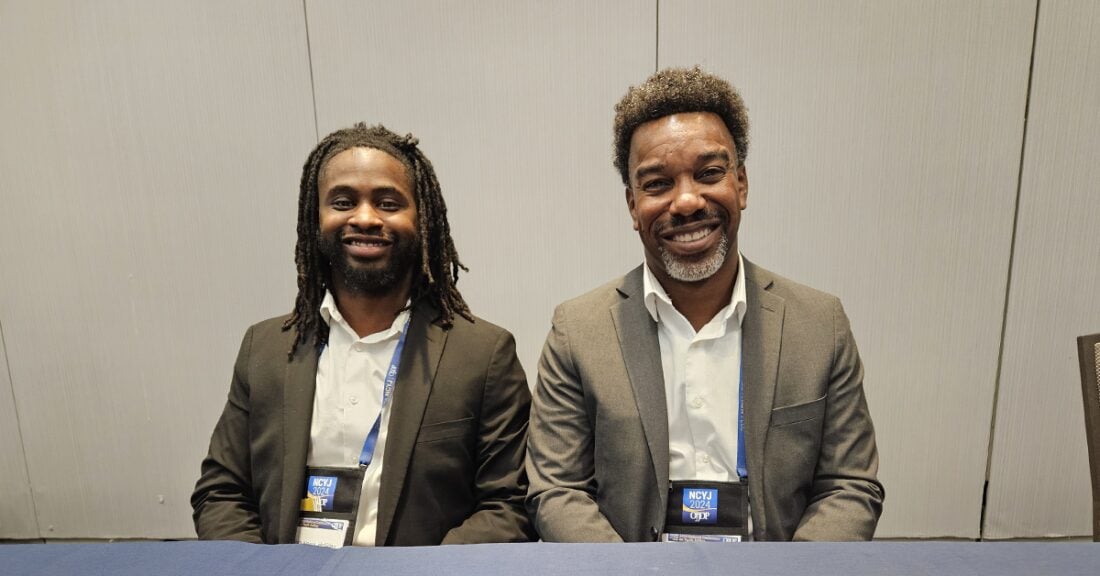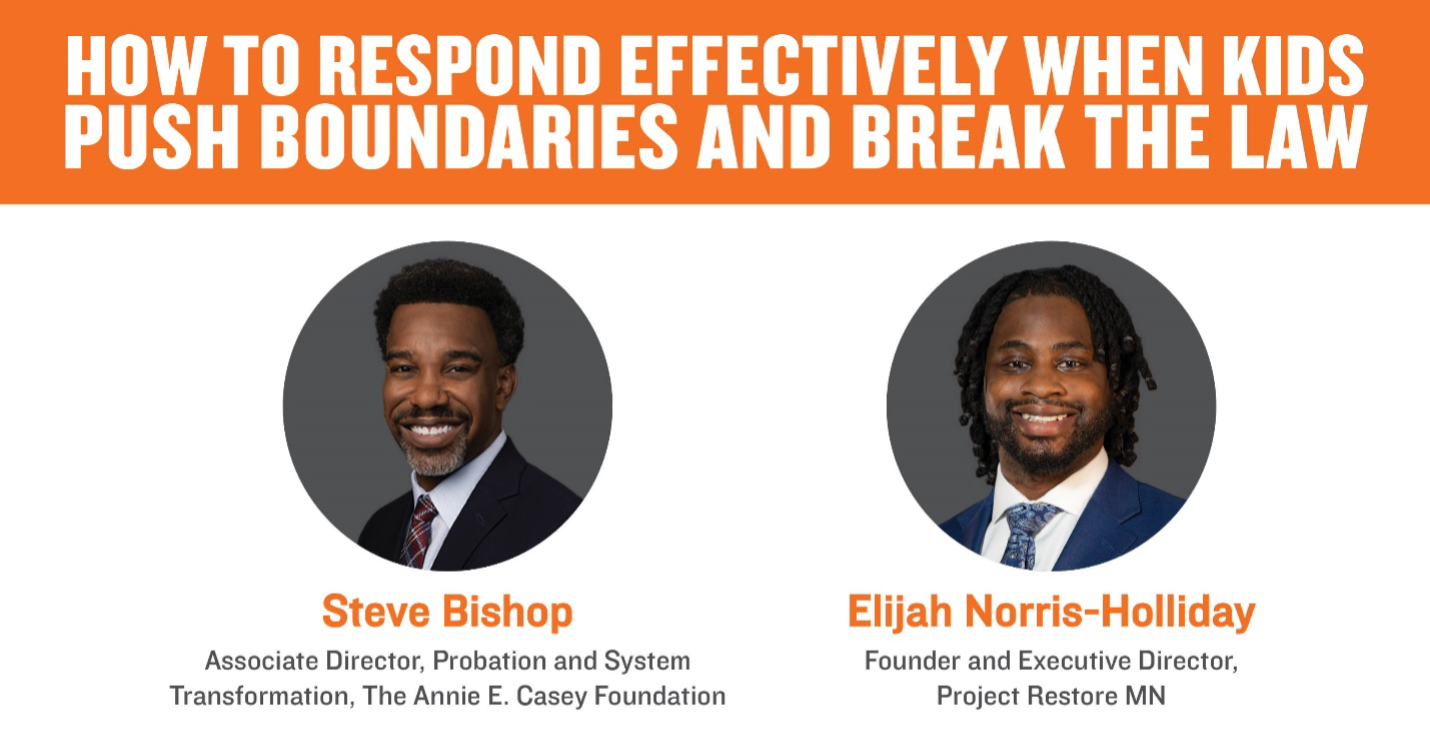How to Respond Effectively When Kids Break the Law
An Instagram Live Conversation

Elijah Norris-Holliday (left) and Steve Bishop (right) attend the 2024 Office of Juvenile Justice and Delinquency Prevention's 2024 National Conference on Youth Justice.
What makes communities safe and helps young people — especially kids who make mistakes and break the law — thrive?
To explore this question, Steve Bishop, the Annie E. Casey Foundation’s associate director for Probation and System Transformation, led an Instagram Live discussion with guest Elijah Norris-Holliday, founder and executive director of Project Restore MN.

During the conversation, they discussed:
- the difference between punishment and accountability;
- positive interventions that work;
- collaboration between formal systems and community-based partners; and
- the number one thing that adults can do to support young people.
Norris-Holliday Discussion Highlights
Mentorship and guidance are important to creating healthy children. Making sure they have good, positive people to look up to and to invest in them and to put them back on the right path when they make mistakes. Because we know all kids are bound to make mistakes.
[Community organizations are] going to have a better opportunity to connect with young people who are struggling, to build with them, to gain their trust, and then to set them on a different path where they can engage in positive activities instead of negative things.
How do we pour all that support into those young people who are engaging in the most risky behavior so when they do go back to their community eventually, they’re going back a better version of themselves?






